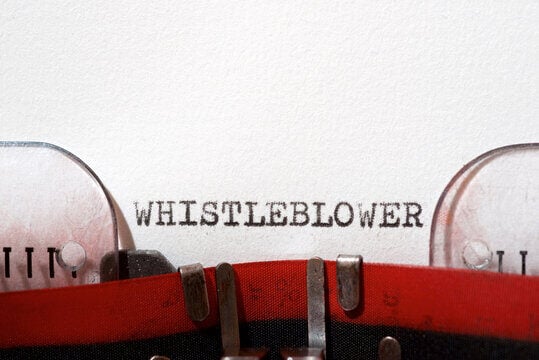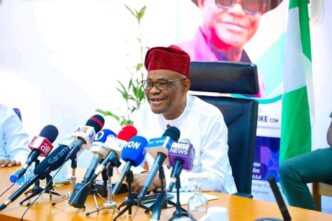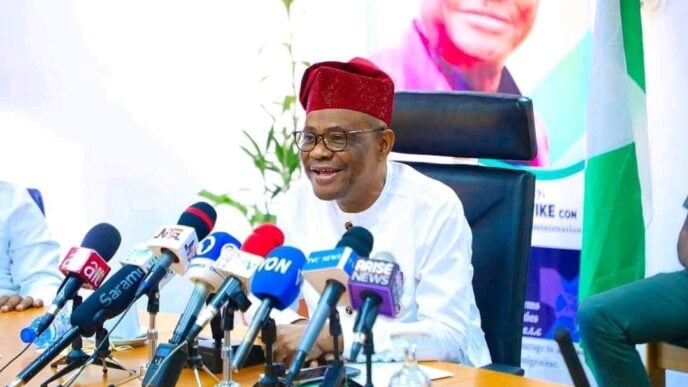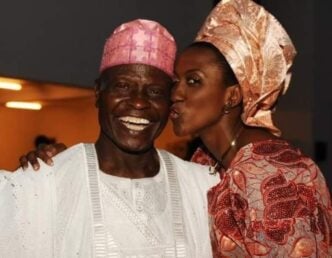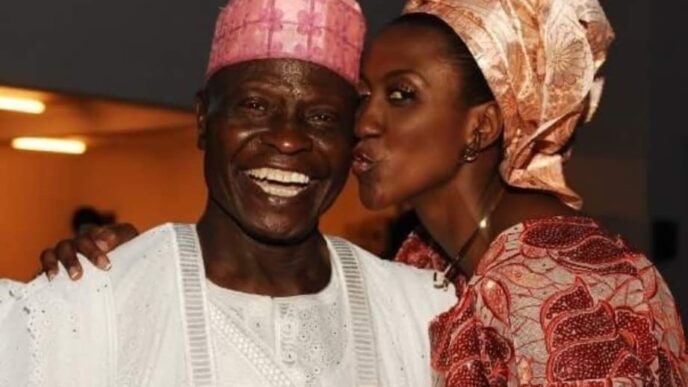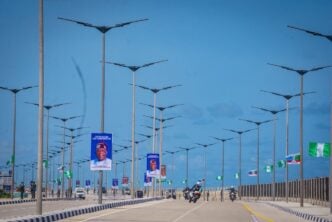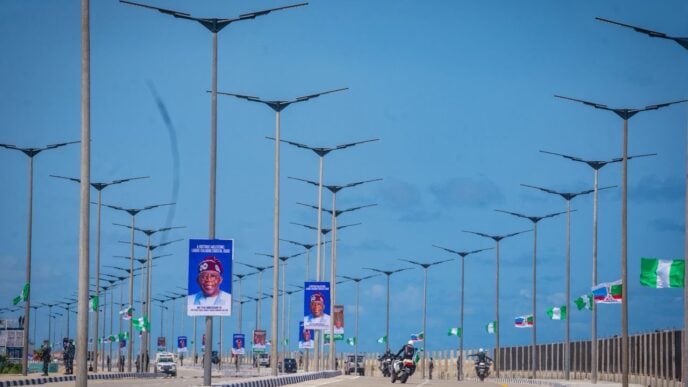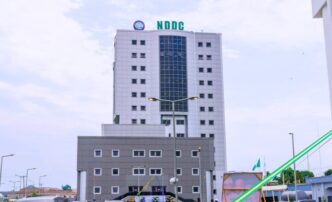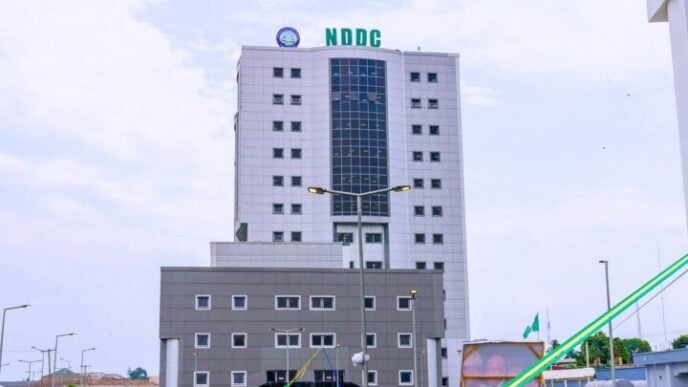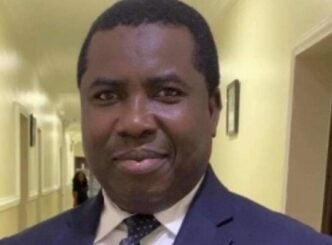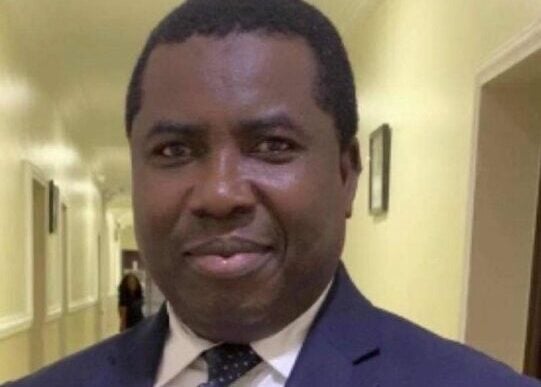BY CRISPIN ODUOBUK
On a bright morning in Abuja, Ntia Thompson walked into his office with a fragile hope. Weeks earlier, the courts had ruled in his favour, recognising the injustice he had endured. Yet the reality remained stark. Once an assistant director in the servicom unit of the Directorate of Technical Cooperation in Africa (DTCA), an agency under the Ministry of Foreign Affairs, he had been reassigned to the library. As benign as that might sound, that reassignment was actually a professional exile for the patriotic act of exposing corruption.
Thompson’s ordeal is only one thread in a larger tapestry of Nigeria’s whistleblower persecution. These are rare citizens who dare to reveal wrongdoing but are too often repaid with punishment rather than protection.
Against this bleak backdrop stands the African Centre for Media and Information Literacy, AFRICMIL. Through its Corruption Anonymous project, AFRICMIL has waged a relentless battle to defend truth tellers for nearly a decade, while also pressing for a whistleblower protection law, which Nigeria urgently needs.
Advertisement
THE LIMITS OF POLICY: INSUFFICIENT FOR LASTING CHANGE
Nigeria’s whistleblower policy, introduced in 2016, was launched with fanfare. It promised financial rewards and a channel to report corruption without fear. Yet, its fatal flaw has always been its lack of legal teeth. A policy can be bent, ignored, or subverted by those it seeks to restrain. A law, by contrast, binds institutions with the weight of the state.
In the absence of such legislation, the policy has too often been a trap. It lures honest Nigerians into exposing fraud, only to leave them vulnerable to reprisals ranging from harassment to dismissal to even death threats.
Advertisement
PROFILES IN COURAGE
While anonymity is typically encouraged to protect whistleblowers, some of those who have chosen to go public with their experiences deserve to be acknowledged and celebrated.
For example, consider the case of Aaron Kaase, a principal administrative officer at the Police Service Commission, when he blew the whistle on the misappropriation of over N275 million meant for staff training. Instead of action against those implicated, Kaase was suspended, charged to court, and eventually dismissed. Though the National Industrial Court later ruled in his favour and ordered his reinstatement, the scars remain. His career stalled, his family life was deeply unsettled, and the victory felt hollow.
Murtala Aliyu Ibrahim, an internal auditor at the Federal Mortgage Bank of Nigeria, discovered fabricated financial reports and contract fraud. His reward for reporting these wrongs was a punitive transfer to a distant posting, followed swiftly by dismissal. For years, he endured persecution before eventually receiving an integrity award, a bittersweet recognition that could not erase the personal and professional damage he had suffered.
Advertisement
Ntia U. Thompson, the assistant director who exposed the diversion of $229,000 in the Ministry of Foreign Affairs, was charged with insubordination, forced into retirement, and then reinstated. His reinstatement, however, came with demotion and professional marginalisation. Today, he continues to live as a cautionary tale of how Nigeria treats those who dare to expose corruption.
Joseph Babatunde Akeju, a respected chief lecturer at Yaba College of Technology, exposed a scandal involving N1.6 billion. He was dismissed on the eve of his retirement, stripped of the dignity of closing a long career with honour. His case demonstrates the cruelty of a system that would rather crush integrity than confront corruption.
In each of these cases and several others not mentioned here, the pattern is unmistakable. Whistleblowers expose wrongdoing, institutions retaliate harshly, and AFRICMIL is left to pick up the pieces through legal action, petitions, and public advocacy. Victories, when they come, are often partial and compromised, leaving the whistleblower bruised and marked as a troublemaker.
THE LAW NIGERIA NEEDS
Advertisement
Recognising the limits of firefighting one whistleblowing case at a time, AFRICMIL has broadened its focus to the judiciary. Its National Interactive Forum for federal high court judges held in September 2025, alongside partners such as TAP Initiative and the National Human Rights Commission, highlighted the role of the bench in filling the vacuum until a comprehensive law is enacted. Judges were urged to confer protection on whistleblowers, uphold their anonymity, and deter retaliation against those who speak the truth in the public interest.
To be clear, while these are vital interim measures, they are no substitute for a law. Other African countries, including Ghana, South Africa, and most recently Senegal, already have dedicated whistleblower protection statutes. Nigeria’s continued reliance on a limited policy framework sends the wrong signal to both citizens and investors.
Advertisement
A robust law would change the calculus. It would establish clear procedures, protect those who make disclosures in the public interest, and guarantee remedies and damages for those targeted. Such a law would not only shield individuals but also strengthen Nigeria’s credibility in the global fight against corruption.
It is worth noting here that AFRICMIL’s leadership in this battle resonates beyond Nigeria’s borders. In partnership with the Platform to Protect Whistleblowers in Africa (PPLAAF) and other allies, it has been part of a regional push to secure whistleblower protection across West Africa, where thirteen countries still lack such laws. This was exemplified by the First Sub-regional Conference on Whistleblowing and Whistleblower Protection in West Africa, which AFRICMIL and partners held in Abuja in November 2024. The high point of the conference was the inauguration of the Whistleblowing Advocacy Coalition of West Africa (WACOWA), a coalition of civil society organisations and other stakeholders dedicated to promoting whistleblowing and whistleblower protection in ECOWAS states. By building coalitions and sharing lessons, AFRICMIL has helped position whistleblowing as a legitimate pillar of governance reform across the region.
Advertisement
PROTECTING THE TRUTH TELLERS
The future of Nigeria’s war against corruption depends on its willingness to protect those who risk much to tell the truth in the public interest. AFRICMIL’s work reveals the human cost of silence and the power of advocacy in securing justice. The National Assembly has a duty to pass a robust whistleblower protection law, supported by vigilant judges and an informed public.
Advertisement
Such reform is not charity but a demand of justice, a necessary pillar of good governance. Until then, the stories of Kaase, Ibrahim, Thompson, Akeju, and, of course, Joseph Ameh and Yisa Usman, whose victimisations are still a subject of litigation in the courts, remind us that for every fractured victory, many truths remain locked away, and corruption thrives in the shadows.
The call to action is clear: Nigeria cannot build a transparent and prosperous future while those who expose corruption are left to walk alone. Protecting whistleblowers is not a luxury; it is a necessity. If Nigeria truly wishes to extinguish corruption, it must first protect its truth tellers. Anything less is complicity.
Crispin Oduobuk is a senior program officer for policy and advocacy at the African Centre for Media and Information Literacy, AFRICMIL.
Views expressed by contributors are strictly personal and not of TheCable.
